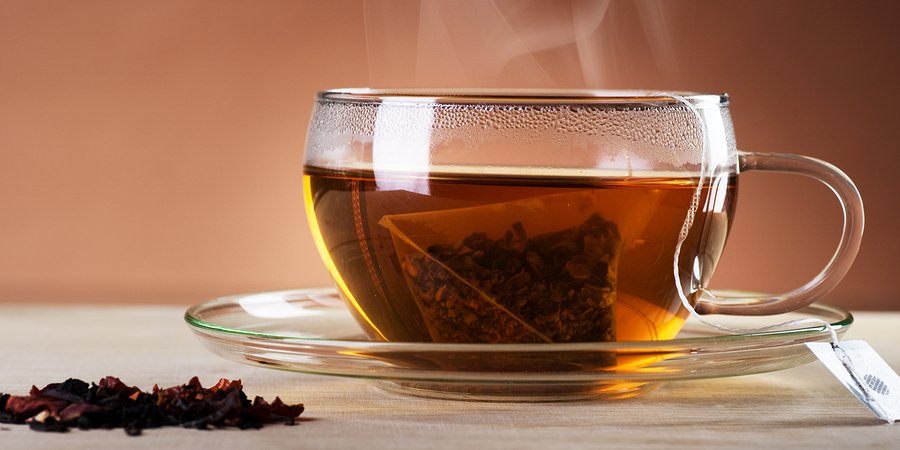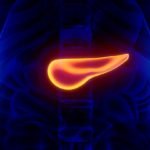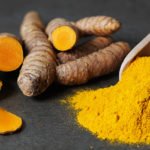Each and every healthy choice you make is important, and beverages are no exception. That might include drinking tea, perhaps in place of your morning cup of joe because it offers nutritional benefits without some of coffee’s pitfalls. However, new research suggests that, despite its health benefits, you need to keep an eye on the temperature of your tea because drinking it piping hot could be doing damage to your esophagus.
The study, which was conducted by the American Cancer Society in Atlanta, Georgia, found that consuming extremely hot tea may be associated with an increased risk of developing esophageal cancer.1Islami, Farhad; et al. “A prospective study of tea drinking temperature and risk of esophageal squamous cell carcinoma.” International Journal of Cancer. 20 March 2019. Accessed 27 March 2019. http://onlinelibrary.wiley.com/doi/full/10.1002/ijc.32220#accessDenialLayout. These results are based on an investigation that included 50,045 men and women living in northeastern Iran. All the subjects were between the ages of 40 and 75 and they were tracked from 2004 through 2017.
During this 13-year period, the participants provided information on their eating habits, including the amount of tea they typically drank each day. The researchers measured the volunteers’ tea to obtain the specific temperature of their preferred way to drink it. This collection of data was then compared against their medical records, which showed that 317 new cases of esophageal cancer were diagnosed over the course of the study.
The investigators discovered that people who drink their tea at a temperature above 140 degrees Fahrenheit, or 60 degrees Celsius, and typically drink more than 700 milliliters (around 23 ounces, or two mugs’ worth) of tea daily face a whopping 90 percent greater risk of esophageal cancer compared to their peers who prefer their tea somewhat cooler and do not drink as much of it.
This is not the first time that tea drinking has been connected to cancer of the esophagus. A 2018 study at the National Cancer Institute in Bethesda, Maryland found that the risk of developing esophageal cancer was increased in those who drink hot tea, but only when they also used alcohol or tobacco.2Yu, Canqing; et al. “Hot Tea Consumption and Its Interactions With Alcohol and Tobacco Use on the Risk for Esophageal Cancer: A Population-Based Cohort Study.” Annals of Internal Medicine. 3 April 2018. Accessed 28 March 2019. http://annals.org/aim/article-abstract/2671921/hot-tea-consumption-its-interactions-alcohol-tobacco-use-risk-esophageal?searchresult=1. However, the current investigation actually determined a temperature level that appears to be associated with the disease risk.
Pinpointing the temperature that does damage over time is important for a few reasons. Tea is often served at a temperature between 160 and 185 degrees. But many people in the United States and Europe will let it sit for several minutes, either to steep or allowing it to cool off a bit. If you are allowing it time to cool down sufficiently, chances are good that your risk of developing esophageal cancer is not 90 percent higher even if you typically have two large cups of tea every day. And in that regard, the results are similar to those found in a 2009 study that found that drinking very hot tea, 158 degrees Fahrenheit or above, raises your risk of esophageal cancer by 800 percent.
In contrast, in areas such as Iran (the country chosen for the investigation), Russia, and Turkey, tea is often consumed at temperatures higher than 149 degrees Fahrenheit. Much of this preference may be due to the use of samovars, which keep tea extremely hot long after it has been brewed.
The other factor to keep in mind when considering the temperature involved is that the association almost assuredly has little to do with tea per se and everything to do with the potentially scalding heat. In other words, it is probably nothing specific to the tea that is contributing to the development of cancer—in fact, some studies point to green tea as having cancer protective properties—but tea happens to be a beverage that some people like very hot so it may be easier to make the connection than it would with soup, coffee, or anything else we consume heated but to a lesser extent. It is simply the body’s reaction to the damage of extremely hot liquids passing through the esophagus several times a day, day after day, that is setting the scene for abnormal cell growth and potential esophageal cancer.
For that reason, the research does not make the case that tea drinking itself is to blame. If you enjoy your daily tea, keep consuming it. After all, tea provides a range of health benefits not found in many other beverages and has been linked to diabetes prevention, a lower risk of kidney stones, and better liver health. Just make sure you always allow for several minutes of cooling time before taking that first sip.
References
| ↑1 | Islami, Farhad; et al. “A prospective study of tea drinking temperature and risk of esophageal squamous cell carcinoma.” International Journal of Cancer. 20 March 2019. Accessed 27 March 2019. http://onlinelibrary.wiley.com/doi/full/10.1002/ijc.32220#accessDenialLayout. |
|---|---|
| ↑2 | Yu, Canqing; et al. “Hot Tea Consumption and Its Interactions With Alcohol and Tobacco Use on the Risk for Esophageal Cancer: A Population-Based Cohort Study.” Annals of Internal Medicine. 3 April 2018. Accessed 28 March 2019. http://annals.org/aim/article-abstract/2671921/hot-tea-consumption-its-interactions-alcohol-tobacco-use-risk-esophageal?searchresult=1. |











